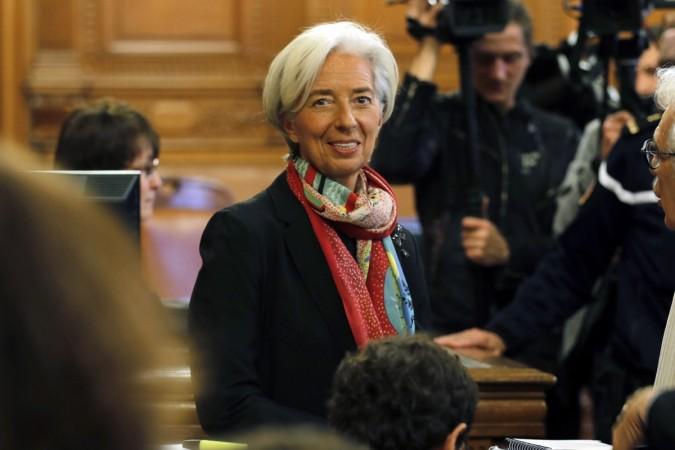
The International Monetary Fund will remain engaged in Greece in some form, which will most likely become clearer after a June 21 meeting of the Eurogroup of euro zone finance ministers, IMF chief Christine Lagarde said on Monday.
"We are considering all the options," Lagarde told a news conference with chiefs of other leading economic organizations in Berlin.
"But we will certainly remain engaged one way or the other with Greece - and that will probably come to a denouement which will be much clearer on June 21 when there is a Eurogroup meeting."
Greece has borrowed more than 200 billion euros from euro zone governments in three consecutive bailouts since 2010 and some lenders are concerned Athens may not repay the loans over the next decades or reverse already implemented reforms and get itself into economic trouble again.
"We will need to agree a post-program arrangement that supports the continued implementation in the coming years of the adopted reforms, as well as the pursuit of sound fiscal policies – but which is not a new program in disguise," EU's Economic Commissioner Pierre Moscovici had said in a speech at the Peterson Institute of International Affairs in Washington.
After Greece exits its bailout it will regain full sovereignty in fiscal policy-making, submitting only to less detailed creditor scrutiny in what is called post-program surveillance. It is now subject to quarterly reviews that it has to pass to get new loans.
But many euro zone countries are concerned less stringent scrutiny will not be enough to keep Greek politicians from pushing for looser fiscal policies.
DEBT RELIEF OPTIONS
To make sure Greece does not veer off the reform track in the years to come, its creditors are considering linking additional debt relief to sound economic policies and to the pace of the country's economic growth.
The various debt relief options under discussion include the transfer of profits from maturing Greek bonds held by national central banks back to Athens, or replacing more costly IMF loans with cheaper euro zone loans.
There are also options of extending maturities of euro zone loans and grace periods for repayment. Such relief could be made conditional on sound economic policies and keep the country under some form of euro zone economic control for years to come.
Adding to the pressure to accept some degree of continued control, euro zone officials have pointed out to Athens that if it makes a "clean exit", Greek banks would no longer be allowed to use Greek debt as collateral in ECB open market operations because the paper is not investment grade.
The banks are now allowed to use Greek bonds as such collateral on the basis of a special waiver which would remain in place if Athens decides to ask for a precautionary credit line from the euro zone bailout fund.









